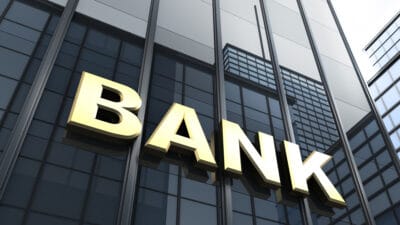Big ASX banks Commonwealth Bank of Australia (ASX: CBA) and National Australia Bank Ltd (ASX: NAB) may soon ask borrowers to consider selling if that seems like the best decision.
What's going on?
According to reporting by the Australian Financial Review, Commonwealth Bank has said that its most leveraged borrowers could be encouraged to downsize the family home or sell multiple investment properties. CBA is worried about borrowers who look as though they don't have good prospects to return to work due to COVID-19.
CBA isn't going to force people to sell their house too quickly, but it wants to have a good understanding of a borrower's situation. The head of CBA's retail bank, Angus Sullivan, said risky borrowers may need an "alternative solution path".
He told the AFR: "If you had a lot of debt from [buying at the peak of the market] and you were in a difficult position from an employment perspective, [downsizing] would be exactly the type of solution that would be worth having a discussion about."
The biggest ASX bank is expecting that most borrowers will return to making payments by the end of 2020, even if it's just repaying interest.
This follows on from the NAB CEO (Ross McEwan) commenting that some property owners may be better off selling early and taking equity out of their homes before it disappears.
What does this mean?
Banks like CBA are profit-making enterprises. They need to manage their loan books and minimise losses where possible.
Property fire sales won't help things, but banks aren't going to give borrowers holidays forever either.
The CoreLogic home value index has shown national house prices steadily dropping over the past few months. At 31 July 2020, national prices had fallen 0.6% over the month and 1.6% over the prior three months. The fall was most pronounced in Melbourne with a 1.2% drop over the month.
This type of fall isn't going to wipe out the built-up equity on people's properties, but if prices do keep falling then the banks may become more worried.
Collectively, the big ASX banks of CBA, NAB, Westpac Banking Corp (ASX: WBC) and Australia and New Zealand Banking Group (ASX: ANZ) have provisioned billions of dollars for the potential losses caused by COVID-19 impacts.
Wise advice from a finance guru
Personal finance expert Scott Pape – also known as the Barefoot Investor – recently sent out a message to his many thousands of email subscribers which included the following section:
'My hunch is that the banks are betting that the overwhelming majority of their customers will get through this. Yet they also know a small number of their customers won't, and so they (well at least Ross McEwan) are turning up the heat on them.
My advice?
Please don't misquote me: I am not saying you should sell your home.
What I am saying is don't be a frog … if you were in hot water before COVID hit, don't just sit there bubbling away.
We're still early on in this crisis, and you have more options than you think. And if you want someone independent (and free!) to walk beside you and carefully lay out your options, call the National Debt Helpline on 1800 007 007 and speak to a financial counsellor (like me) immediately.
The last word goes to McEwan:
"We've seen in other crises around the world, when people try to hold on they end up walking away with nothing."'
Foolish takeaway
It will be very interesting to see what happens over the next six to twelve months. A safe and effective vaccine could really boost the outlook for people who work in impacted industries like airlines, tourism and venues. It would also help confidence for the broader economy.
But if banks like CBA see that a growing number of borrowers aren't going to be able to afford to stay in their homes then there could be more pressure put on them to sell.
People waiting to buy a home may be hoping for lower house prices. But as we saw during 2018 and early 2019, falling house prices can impact consumer confidence and spending.
I wouldn't want to buy bank shares today, though CBA is my preferred pick of the big four due to its stronger balance sheet and higher-quality.








